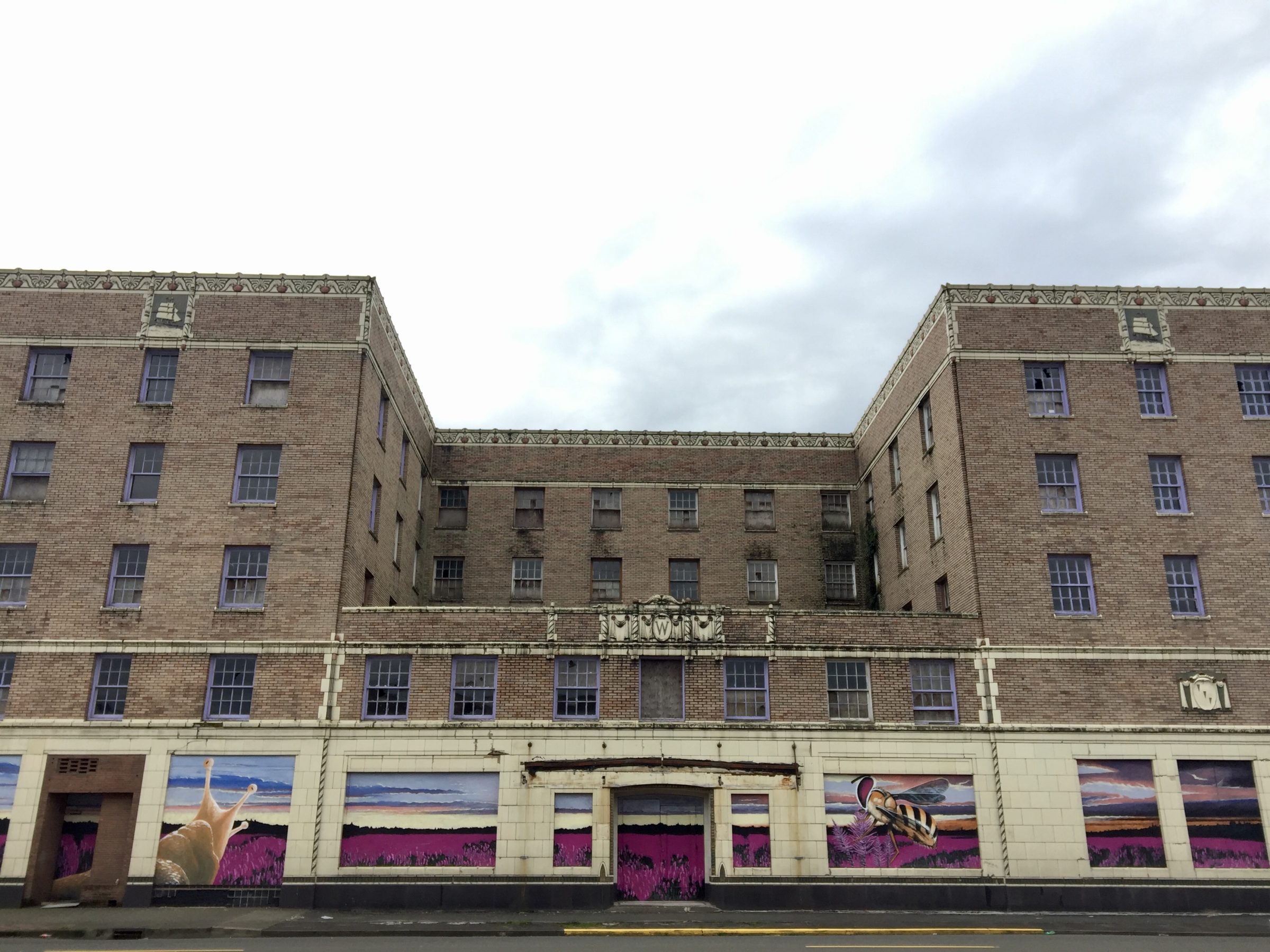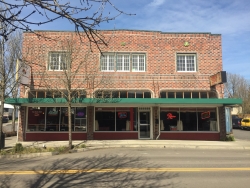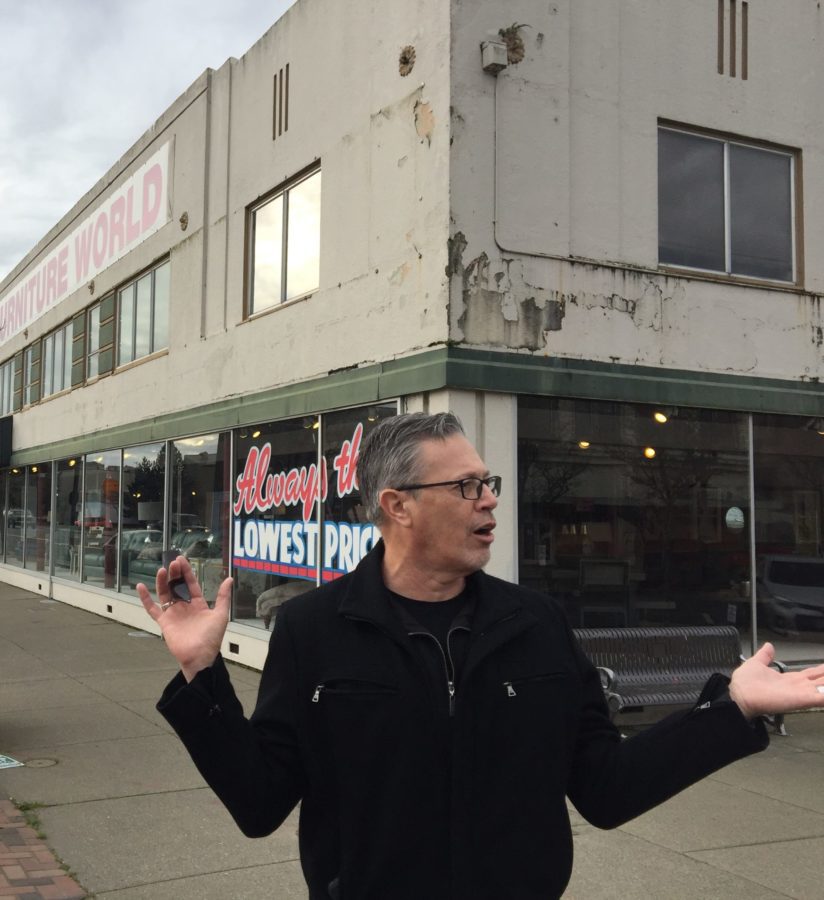New Bill Extends Special Valuation for Historic Properties in Distressed Areas

The Morck in downtown Aberdeen is one of many historic buildings in distressed areas now eligible for extended special valuation.
On March 19, 2020, Governor Jay Inslee signed House Bill 2868 into law, enabling property owners in distressed areas to request two seven-year extensions of Special Tax Valuation for historic buildings.
The special valuation program helps make rehabilitation of historic buildings more financially feasible. The program allows property owners to freeze the assessed (i.e. taxable) value of a property at it’s original, pre-renovation level. It also allows owners to subtract certain qualified rehabilitation costs from their current property taxes for up to ten years. For large rehabilitation projects with lots of qualified rehabilitation costs, this can sometimes mean that owners pay no property taxes for up to 10 years. For any size project, the program helps remove the disincentive created when rehabilitation substantially improves a property and raises its taxes.

The Blair Building in Washougal utilized Special Valuation to help finance a rehabilitation. It is now home to two local restaurants and four studio apartments.
Since its start in 1985, Washington’s special valuation program has helped provide incentive for the rehabilitation for historic buildings throughout our state, such as the Tacoma Elks Temple, Washougal’s Blair Building, and the former Otis (Willard) Hotel in Spokane. It was utilized by 31 projects last year alone and has leveraged over $1.6 billion in private investment since 2000.
The new House Bill 2868 builds on this program by extending the period of eligibility for certain projects to up to 24 years total. Under the new legislation, cities within economically distressed counties (as defined by the State Employment Security Department) that have an active historic preservation program and less than 20,000 residents will be able to extend the special valuation program to eligible properties for up to 14 years beyond the initial 10-year period. The tax revision can be transferred from one property owner to the next and is available for Aberdeen, Centralia, Chehalis, Colville, Dayton, Hoquiam, Port Townsend, Ritzville, Shelton, and Waterville.
“The extension of Special Valuation for rural distressed communities will undoubtedly have a lasting effect on the long-term viability of significant historic rehabilitation projects,” says Nicholas Vann, Washington’s Deputy State Historic Preservation Officer with the Department of Archaeology & Historic Preservation (DAHP). “The value of the program should increase with the new extensions, and it is our hope that new historic rehabilitation projects will catalyze additional economic development in these communities.”

Wil Russoul, Executive Director of the Aberdeen Revitalization Movement and an early champion for H.B. 2868, leads a tour in downtown Aberdeen.
“We are very excited about the Governor signing H.B. 2868 into law and are hopeful that it will make a difference to increase restoration of our historical buildings thus preserving our past and sense of place,” adds Wil Russoul, an early champion for this legislation. Russoul is Executive Director of the Aberdeen Revitalization Movement, a member of the Washington Main Street network, which connects Main Street communities across the state with peers, resources, and policymakers. Russoul began his effort in 2018 during a meeting with DAHP. “I shared that while the current law benefits larger cities, it does not quite meet the economic needs of smaller distressed cities because the timetable is not long enough for recovery of a building owner’s investment in remote places like Aberdeen and Hoquiam.”
Russoul partnered with building owners, city leaders, and neighboring communities to write a proposed amendment to the special valuation program, extending the rehabilitation time period to target cities in high need of these economic incentives. This proposal was eventually picked up by Representatives Jim Walsh and Brian Blake, who introduced the bill to the Washington State House of Representatives in late January 2020. Russoul, along with others from Grays Harbor County, provided testimony and written support for the bill as it made its way through the State House and Senate. They celebrated when Governor Jay Inslee signed it into law on March 19, 2020.
Amidst much global turmoil, this new legislation is poised to provide much-needed economic investment and relief for rural distressed areas. “I want to say thank you to all those who worked together helping towards historical preservation of our unique beautiful buildings,” says Russoul. “We plan to hold a local training session partnering with the State, County and City for our stakeholders after the current COVID19 restrictions are lifted.” The new legislation becomes effective on June 11, 2020.
